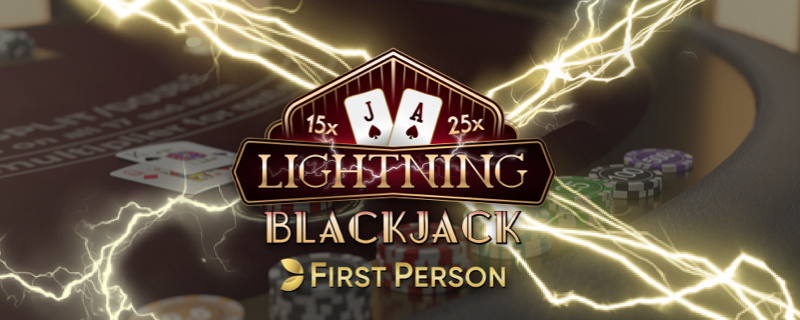LIFTING THE LID: After Wimbledon AFC came home last weekend to Plough Lane, we caught up with Terry Phelan to hear his memories of playing there with The Crazy Gang.
“It was a unique place…”
Former Wimbledon full-back Terry Phelan recounts his memories of the original Plough Lane, just a few days after AFC Wimbledon finally made their long-awaited return to their spiritual home.
“The players’ lounge used to turn into a nightclub,” Phelan tells BETDAQ. “You’d probably stay in the players’ lounge bar all day after the game and then it would turn into a nightclub at 9pm, so you’d never leave the ground if you wanted to have a few drinks.
“The game would finish at 4.45pm, you’d go to the bar and have a couple of drinks and before you know it, it’s changing into a nightclub. And you’d think, ‘We might as well stay all night now’ – until two or three in the morning! It really was a unique place.”
Last week’s 2-2 draw with Doncaster at the new Plough Lane marked the end of a unique journey for AFC Wimbledon, one that finally saw them return home to Merton 18 years on from their formation in 2002, which was borne out of the supporters’ desire for a phoenix club following the original Wimbledon FC’s decision to relocate to Milton Keynes and rename themselves as MK Dons.
The old Plough Lane was home to Wimbledon FC from 1912 to 1991, before the Dons moved on to become tenants at Crystal Palace’s Selhurst Park in response to the publication of the Taylor Report, which recommended that top-flight sides should play in all-seater stadiums in the wake of the 1989 Hillsborough disaster.
“It wasn’t a big ground – it kept us humble, neat and compact,” Phelan, who played for Wimbledon from 1987 to 1992, adds. “It was ours and we loved it. We tried to make it so uncomfortable for the opposition – no hot water, salt instead of sugar in the teacups, all floorboards and no carpet… It was a joy to play there – you were so close to the crowd, you could smell the hotdogs and the onions. Plough Lane was a unique place – it made a lot of players who they are now.”
Those players Phelan is referring to are the likes of Vinnie Jones, Dennis Wise, John Fashanu and Lawrie Sanchez – tough, uncompromising players who helped put the original Wimbledon FC on the map – from an unfashionable, long-ball playing lower-league outfit to the most unlikeliest of FA Cup winners and regular top-10 finishers in England’s top flight in the 1980s and ‘90s.
They went by the name of The Crazy Gang – so called by the media due to the boisterous behaviour and often outrageous practical jokes played amongst each other by the squad.
“They had a different aura about them,” Phelan says of his former team-mates. “When we want to train and play games it was serious, but anywhere else it was a laugh a minute.
“One time, John Scales came in with a new pair of shoes on – everybody notices them. He goes out to training and all you hear is ‘boom boom’ and the lads have got two six-inch nails and a hammer, they’ve taken his insoles out, nailed his boots to the bench and put the insoles back in and just left the boots there on the bench underneath his clothes.
“After training John comes in, has his shower, goes to pick up his shoes and they don’t move. The lads are killing themselves laughing – he looks under the bench and see the nails. So he just has to leave them there and go out with his flip-flops on.
“Another time, Wimbledon owner Sam Hamann was on the team coach to Aston Villa playing cards with Dennis Wise, Vinnie, Alan Cork and a couple of the other lads. But they weren’t playing for money – they said to Sam, ‘If you lose, we cut something off your clothes’.
“Sam went into Aston Villa and his tie was cut, he had no collar on his shirt, no arms on his shirt or jacket, his trousers were cut to his knees and his socks were cut. He had to wear a tracksuit in the end as he was going into the chairman’s lounge! Even he was a part of it all.”
Phelan added: “You’d come into a restaurant and if you’d put your door key on the table and went to the toilet, your door key was gone… You didn’t know if your bed was going to be sent down to the foyer in a lift, if your clothes were going to be in a bath of water, you didn’t know what was going to be in your pillow or your shoes, you didn’t know whether your clothes would be cut up.
“But you had to take it and had to live with it. Someone would throw a roll full of butter at your head and then there’d be a food fight. I thought, what are these guys like – I either go with it or I don’t.”
Some have since accused The Crazy Gang of going too far with their pranks and high jinks.
Phelan admits it was an intimidating dressing room to walk into, but that the period helped to turn him into the player he would become – one who would play at the 1994 World Cup with Republic of Ireland and become the world’s most expensive defender when leaving Wimbledon for Manchester City for £2.5million in 1992.
“Players today wouldn’t get away with that, football’s changed now. There’s things you can and can’t do, but we all knew that was The Crazy Gang and you had to accept it,” Phelan said.
“It was tough. It took me six months to gather my thoughts about where I’d come to. Don’t get me wrong, the boys were brilliant, it was a family unit, but you had to break into that unit.
“After six months, I thought I’m just going to play how I want to play, and after that the lads said, ‘Welcome to the family, you’ve arrived, we knew you had that grit and determination, now you’re one of us’. I’m glad I stayed as it made a man of me and the four years I had there were absolutely magnificent.”
After a career that also took him to the likes of Chelsea, Everton and Crystal Palace, as well as the United States and New Zealand, Phelan now lives in India, working as a technical director at South United FC in Bangalore.
But he still remains eager to return to Merton at some point in the future to take in Plough Lane’s new surroundings.
“It’s great for the supporters to be back there,” he said. “They have a club now in SW19, on Plough Lane where it all started off, where they had some glory nights. They’ll be able to hear the echoes of the years gone by.
“You might see Wimbledon in the Premier League someday. Why can’t we dream? Every AFC Wimbledon player can now think, ‘This is what happened in those days, this is why we’re back, so it can happen again.’”









